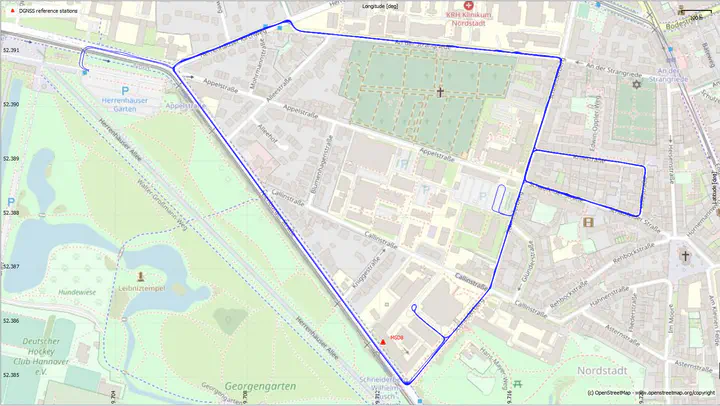Improved Observation Interval Bounding for Multi-GNSS Integrity Monitoring in Urban Navigation
 Reference trajectory in the i.c.sens measurement compaign
Reference trajectory in the i.c.sens measurement compaignAbstract
Talk at ION GNSS+ 2021, awarded best presentation of the track.
Integrity monitoring is of great importance for Global Navigation Satellite Systems (GNSS) applications. Unlike classical approaches based on probabilistic assumptions, the alternative interval-based integrity approach depends on deterministic interval bounds as inputs. Different from a quadratic variance propagation, the interval approach has intrinsically a linear uncertainty propagation which is adequate to describe remaining systematic uncertainty.
In order to properly characterize all ranging error sources and determine the improved observation interval bounds, a processing scheme is proposed in this contribution. We validated for a first time how the sensitivity analysis is feasible to determine uncertainty intervals for residual ionospheric errors and residual tropospheric errors, taking advantage of long-term statistics against reference data. Transforming the navigation problem into a convex optimization problem, the interval bounds are propagated from the range domain to the position domain.
We implemented this strategy for multi-GNSS positioning in an experiment with static data from International GNSS Service (IGS) station Potsdam (POTS) and an experiment with kinematic data from a measurement campaign conducted in the urban area of Hannover, Germany, on August 26, 2020.